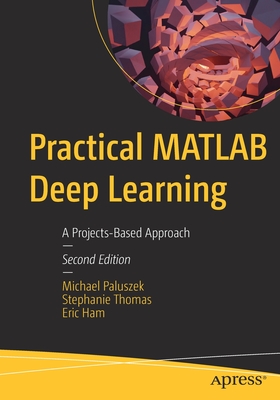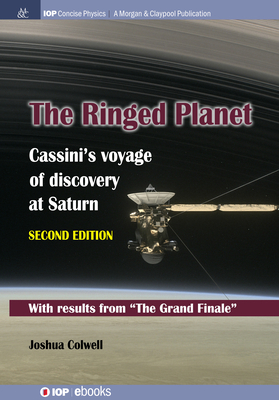Practical MATLAB Deep Learning: A Projects-Based Approach 2/e
暫譯: 實用 MATLAB 深度學習:基於專案的方法(第二版)
Paluszek, Michael, Thomas, Stephanie, Ham, Eric
- 出版商: Apress
- 出版日期: 2022-09-11
- 售價: $2,110
- 貴賓價: 9.8 折 $2,067
- 語言: 英文
- 頁數: 327
- 裝訂: Quality Paper - also called trade paper
- ISBN: 1484279115
- ISBN-13: 9781484279113
-
相關分類:
DeepLearning、Matlab
海外代購書籍(需單獨結帳)
商品描述
Harness the power of MATLAB for deep-learning challenges. Practical MATLAB Deep Learning, Second Edition, remains a one-of a-kind book that provides an introduction to deep learning and using MATLAB's deep-learning toolboxes. In this book, you'll see how these toolboxes provide the complete set of functions needed to implement all aspects of deep learning. This edition includes new and expanded projects, and covers generative deep learning and reinforcement learning.
Over the course of the book, you'll learn to model complex systems and apply deep learning to problems in those areas. Applications include:
- Aircraft navigation
- An aircraft that lands on Titan, the moon of Saturn, using reinforcement learning
- Stock market prediction
- Natural language processing
- Music creation usng generative deep learning
- Plasma control
- Earth sensor processing for spacecraft
- MATLAB Bluetooth data acquisition applied to dance physics
What You Will Learn
- Explore deep learning using MATLAB and compare it to algorithms
- Write a deep learning function in MATLAB and train it with examples
- Use MATLAB toolboxes related to deep learning
- Implement tokamak disruption prediction
- Now includes reinforcement learning
Who This Book Is For
Engineers, data scientists, and students wanting a book rich in examples on deep learning using MATLAB.
商品描述(中文翻譯)
利用 MATLAB 的力量來解決深度學習挑戰。《實用 MATLAB 深度學習(第二版)》仍然是一本獨一無二的書,提供了深度學習的介紹以及如何使用 MATLAB 的深度學習工具箱。在這本書中,您將看到這些工具箱提供了實現深度學習所有方面所需的完整功能集。本版包括新的擴展專案,並涵蓋生成式深度學習和強化學習。
在本書的過程中,您將學習如何建模複雜系統並將深度學習應用於這些領域的問題。應用範圍包括:
- 飛機導航
- 一架使用強化學習在土星的衛星泰坦上著陸的飛機
- 股票市場預測
- 自然語言處理
- 使用生成式深度學習創作音樂
- 等離子體控制
- 太空船的地球感測器處理
- 將 MATLAB 藍牙數據採集應用於舞蹈物理學
您將學到的內容:
- 使用 MATLAB 探索深度學習並與算法進行比較
- 在 MATLAB 中編寫深度學習函數並用範例進行訓練
- 使用與深度學習相關的 MATLAB 工具箱
- 實現托卡馬克擾動預測
- 現在包括強化學習
本書適合對象:
工程師、數據科學家和希望獲得豐富範例的學生,專注於使用 MATLAB 的深度學習。
作者簡介
Michael Paluszek is the co-author of MATLAB Recipes published by Apress. He is President of Princeton Satellite Systems, Inc. (PSS) in Plainsboro, New Jersey. Mr. Paluszek founded PSS in 1992 to provide aerospace consulting services. He used MATLAB to develop the control system and simulation for the Indostar-1 geosynschronous communications satellite, resulting in the launch of PSS' first commercial MATLAB toolbox, the Spacecraft Control Toolbox, in 1995. Since then he has developed toolboxes and software packages for aircraft, submarines, robotics, and fusion propulsion, resulting in PSS' current extensive product line. He is currently leading an Army research contract for precision attitude control of small satellites and working with the Princeton Plasma Physics Laboratory on a compact nuclear fusion reactor for energy generation and propulsion. Prior to founding PSS, Mr. Paluszek was an engineer at GE Astro Space in East Windsor, NJ. At GE he designed the Global Geospace Science Polar despun platform control system and led the design of the GPS IIR attitude control system, the Inmarsat-3 attitude control systems and the Mars Observer delta-V control system, leveraging MATLAB for control design. Mr. Paluszek also worked on the attitude determination system for the DMSP meteorological satellites. Mr. Paluszek flew communication satellites on over twelve satellite launches, including the GSTAR III recovery, the first transfer of a satellite to an operational orbit using electric thrusters. At Draper Laboratory Mr. Paluszek worked on the Space Shuttle, Space Station and submarine navigation. His Space Station work included designing of Control Moment Gyro based control systems for attitude control. Mr. Paluszek received his bachelors in Electrical Engineering, and master's and engineer's degrees in Aeronautics and Astronautics from the Massachusetts Institute of Technology. He is author of numerous papers and has over a dozen U.S. Patents.
Stephanie Thomas is the co-author of MATLAB Recipes, published by Apress. She received her bachelor's and master's degrees in Aeronautics and Astronautics from the Massachusetts Institute of Technology in 1999 and 2001. Ms. Thomas was introduced to PSS' Spacecraft Control Toolbox for MATLAB during a summer internship in 1996 and has been using MATLAB for aerospace analysis ever since. She built a simulation of a lunar transfer vehicle in C++, LunarPilot, during the same internship. In her nearly 20 years of MATLAB experience, she has developed many software tools including the Solar Sail Module for the Spacecraft Control Toolbox; a proximity satellite operations toolbox for the Air Force; collision monitoring Simulink blocks for the Prisma satellite mission; and launch vehicle analysis tools in MATLAB and Java, to name a few. She has developed novel methods for space situation assessment such as a numeric approach to assessing the general rendezvous problem between any two satellites implemented in both MATLAB and C++. Ms. Thomas has contributed to PSS' Attitude and Orbit Control textbook, featuring examples using the Spacecraft Control Toolbox, and written many software User's Guides. She has conducted SCT training for engineers from diverse locales such as Australia, Canada, Brazil, and Thailand and has performed MATLAB consulting for NASA, the Air Force, and the European Space Agency.
Eric Ham is a a Technical Specialist, Princeton Satellite Systems. His expertise lies with deep learning, programming using MATLAB, C++ and related.
作者簡介(中文翻譯)
邁克爾·帕盧塞克是由Apress出版的《MATLAB食譜》的共同作者。他是位於新澤西州普蘭斯伯勒的普林斯頓衛星系統公司(PSS)的總裁。帕盧塞克先生於1992年創立PSS,提供航空航天諮詢服務。他使用MATLAB開發了Indostar-1靜止通信衛星的控制系統和模擬,並於1995年推出了PSS的第一個商業MATLAB工具箱——航天器控制工具箱。自那時以來,他為飛機、潛艇、機器人和聚變推進系統開發了多個工具箱和軟體包,形成了PSS目前廣泛的產品線。他目前正在領導一項陸軍研究合約,專注於小型衛星的精確姿態控制,並與普林斯頓等離子體物理實驗室合作,開發用於能源生成和推進的緊湊型核聚變反應堆。在創立PSS之前,帕盧塞克先生曾在新澤西州東溫莎的GE Astro Space擔任工程師。在GE,他設計了全球地球空間科學極地去旋轉平台的控制系統,並主導了GPS IIR姿態控制系統、Inmarsat-3姿態控制系統和火星觀測者的delta-V控制系統的設計,利用MATLAB進行控制設計。帕盧塞克先生還參與了DMSP氣象衛星的姿態確定系統的工作。他參與了超過十二次衛星發射的通信衛星飛行,包括GSTAR III的回收,這是首次使用電推進器將衛星轉移到運行軌道。帕盧塞克先生在Draper實驗室工作時參與了航天飛機、太空站和潛艇導航的相關工作。他在太空站的工作包括設計基於控制力矩陀螺的姿態控制系統。帕盧塞克先生獲得了麻省理工學院的電機工程學士學位,以及航空和航天工程的碩士和工程學位。他是多篇論文的作者,擁有十多項美國專利。
史蒂芬妮·托馬斯是由Apress出版的《MATLAB食譜》的共同作者。她於1999年和2001年在麻省理工學院獲得航空和航天工程的學士和碩士學位。托馬斯女士在1996年的暑期實習中接觸到了PSS的MATLAB航天器控制工具箱,並自此開始使用MATLAB進行航空航天分析。在同一次實習中,她使用C++構建了一個月球轉移載具的模擬,名為LunarPilot。在近20年的MATLAB經驗中,她開發了許多軟體工具,包括航天器控制工具箱的太陽帆模組;為空軍開發的近距衛星操作工具箱;Prisma衛星任務的碰撞監測Simulink模塊;以及用MATLAB和Java開發的發射載具分析工具等。她還開發了用於太空情況評估的新方法,例如一種數值方法來評估任意兩顆衛星之間的一般會合問題,並在MATLAB和C++中實現。托馬斯女士為PSS的《姿態和軌道控制》教科書做出了貢獻,該書包含使用航天器控制工具箱的示例,並撰寫了多本軟體使用者指南。她為來自澳大利亞、加拿大、巴西和泰國等地的工程師進行了SCT培訓,並為NASA、空軍和歐洲航天局提供了MATLAB諮詢服務。
埃里克·哈姆是普林斯頓衛星系統的技術專家。他的專長在於深度學習、使用MATLAB、C++及相關技術的編程。

























